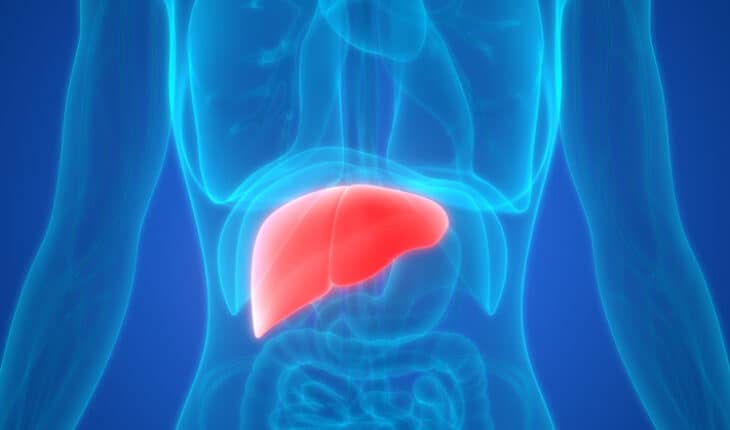Testing strategy for chronic liver disease: A research team from the Department of Medicine III at MedUni Vienna and University Hospital Vienna has conducted a large-scale study showing the important value of repeated liver assessments by a novel method that can significantly improve risk assessment in patients with chronic liver disease.
The dynamics of regular measurements of liver stiffness indicate a personalised patient risk profile which enables the initiation of individualized treatment strategies. The research findings were recently published in the peer-reviewed scientific top journal Gastroenterology.
The method developed in the study centres on measurements of liver stiffness, an assessment approach that is increasingly applied in everyday clinical practice to determine the severity of chronic liver disease and inform treatment decisions. However, until now it had been unclear how to interpret changes in liver stiffness over time. To help provide answers to this question, a team of researchers headed by Georg Semmler, David Bauer, and Thomas Reiberger from the Division of Gastroenterology and Hepatology at the Department of Internal Medicine III at MedUni Vienna and University Hospital Vienna analysed liver stiffness meassurements in a large cohort of patients with chronic liver disease patients.
Over the an average observation period of around six years, a total of 8,561 liver stiffness measurements were performed in 2,508 individual patients. The researchers monitored the progression of the disease and determined the predictive power of changes in liver stiffness concerning liver decompensation or the death of patients during the observation period. Liver decompensation refers to the occurrence of severe complications associated with liver diseases, which manifest themselves in various ways such as an accumulation of fluid in the abdominal cavity (ascites), bleeding from dilated veins in the oesophagus or stomach (varices), or confusion (encephalopathy) stemming from impairment of the liver’s detoxification function. Liver decompensation is always associated with a significant worsening of prognosis, and in many cases represents a life-threatening condition.
Personalised risk assessment and therapy planning
The analysis conducted by the research team showed that monitoring the progression of liver stiffness over time was a better predictor of the risk of liver decompensation than single measurements. In fact, the detected changes in liver stiffness proved to be more informative than other methods commonly used to determine the severity of liver disease, such as the FIB-4 score or the MELD score. The team was also able to demonstrate how changes in liver stiffness can be interpreted. The researchers determined the extent to which the prognosis for chronic liver disease patients improves or worsens when liver stiffness decreases or increases, respectively, by a given percentage.
“An understanding of the individual patient’s personal risk profile means that it is possible to initiate optimised, personalised treatment,” notes study principal investigator Thomas Reiberger, highlighting the significance of the findings. The incidence of chronic liver disease, and particularly fatty liver disease is increasing worldwide, which is strongly linked to risk factors such as overweight and obesity or alcohol consumption.
Publication: Gastroenterology
Dynamics in liver stiffness measurements predict outcomes in advanced chronic liver disease;
Georg Semmler, Zhenwei Yang, Laurenz Fritz, Finoa Köck, Benedikt Silvester Hofer, Lorenz Balcar, Lukas Hartl, Mathias Jachs, Katharina Stopfer, Anna Schedlbauer, Daniela Neumayer, Juri Maurer, Theresa Müllner-Bucsics, Benedikt Simbrunner, Bernhard Scheiner, Michael Trauner, Mattias Mandorfer, Thomas Reiberger, David JM Bauer;
DOI: 10.1053/j.gastro.2023.06.030
https://doi.org/10.1053/j.gastro.2023.06.030
- New lipid-based pathway discovered as key to memory formation - 25th June 2025
- Crucial link could explain how Alzheimer’s takes hold - 25th June 2025
- Understanding Your Mind Can Improve Daily Life - 25th June 2025







